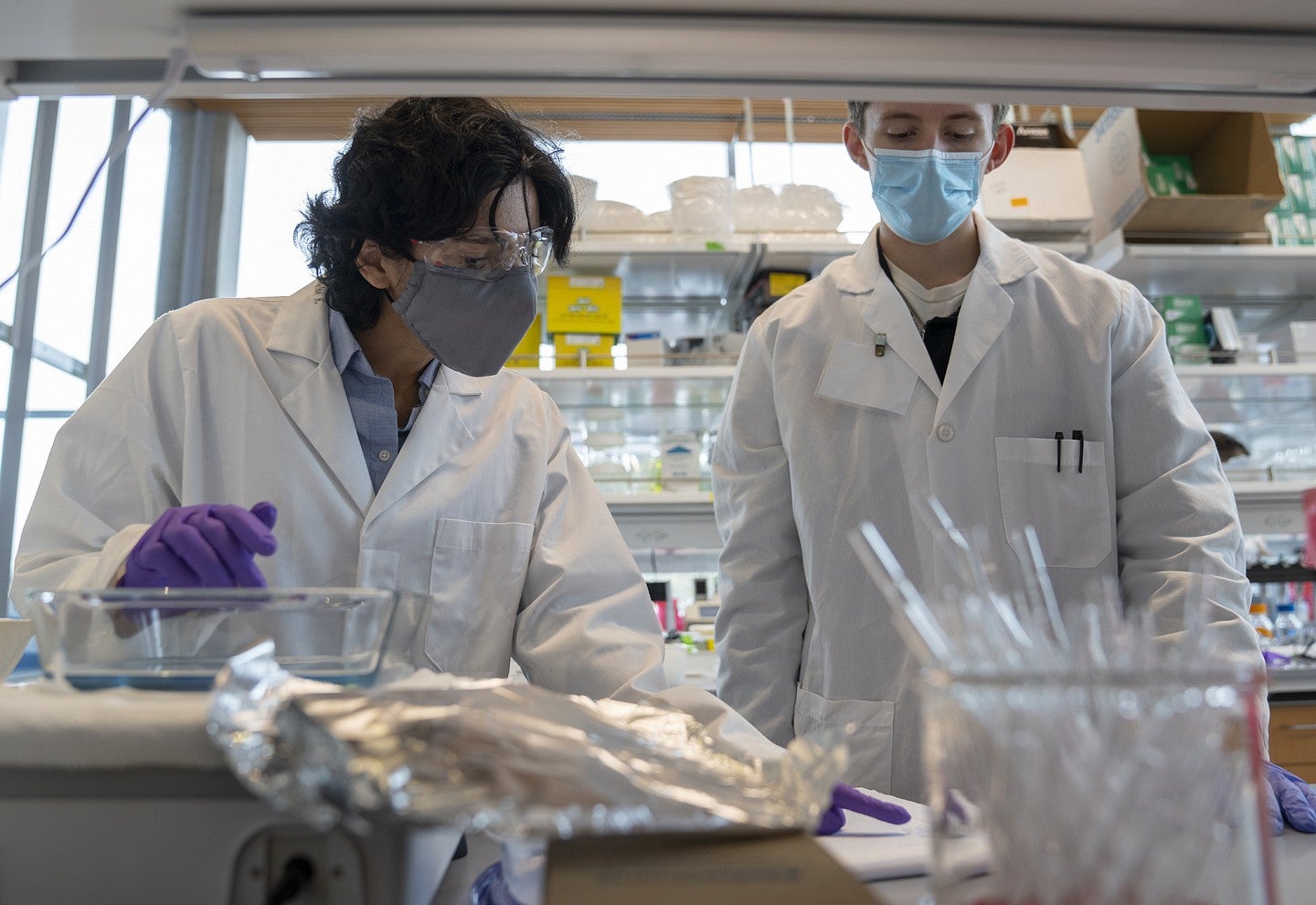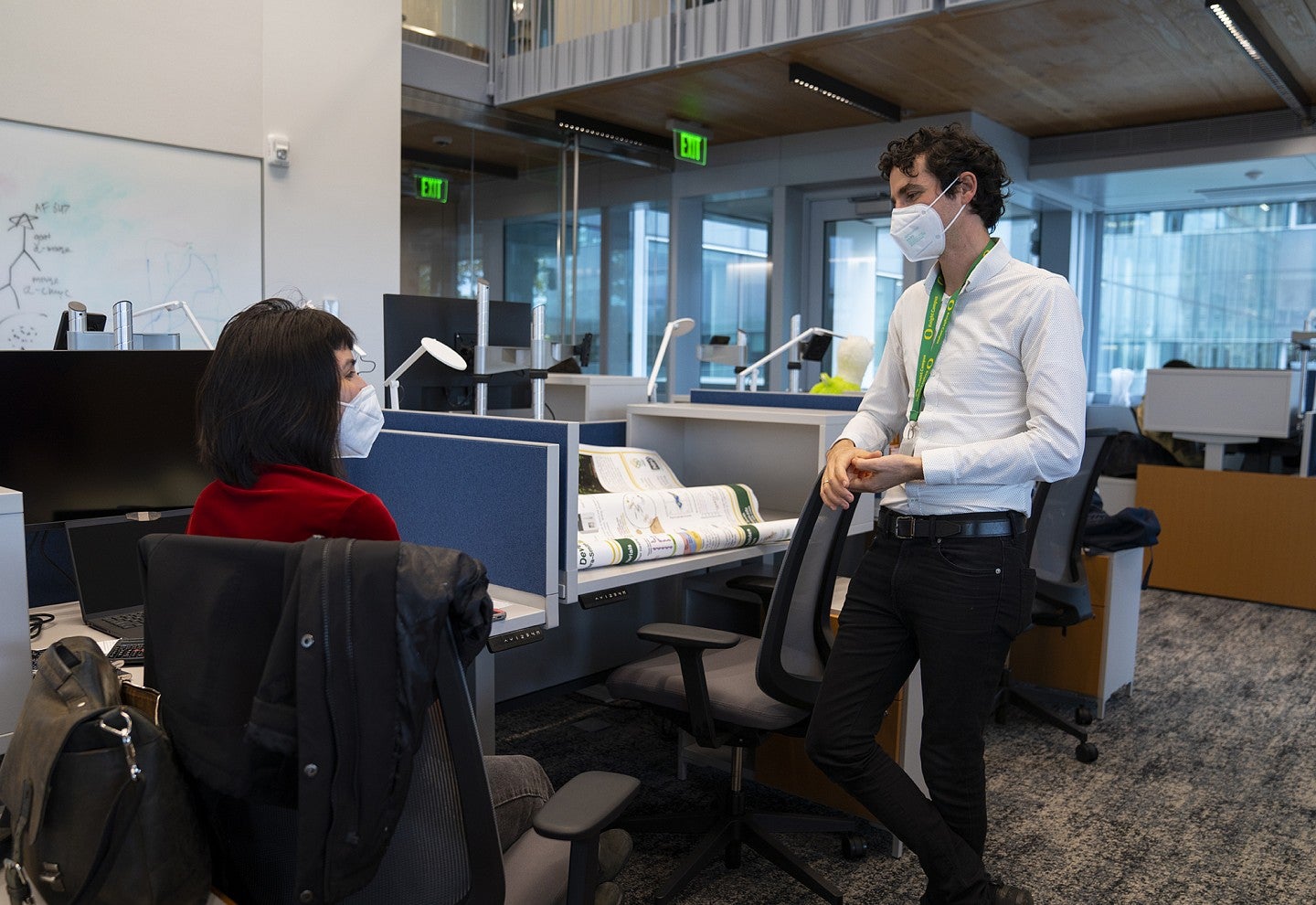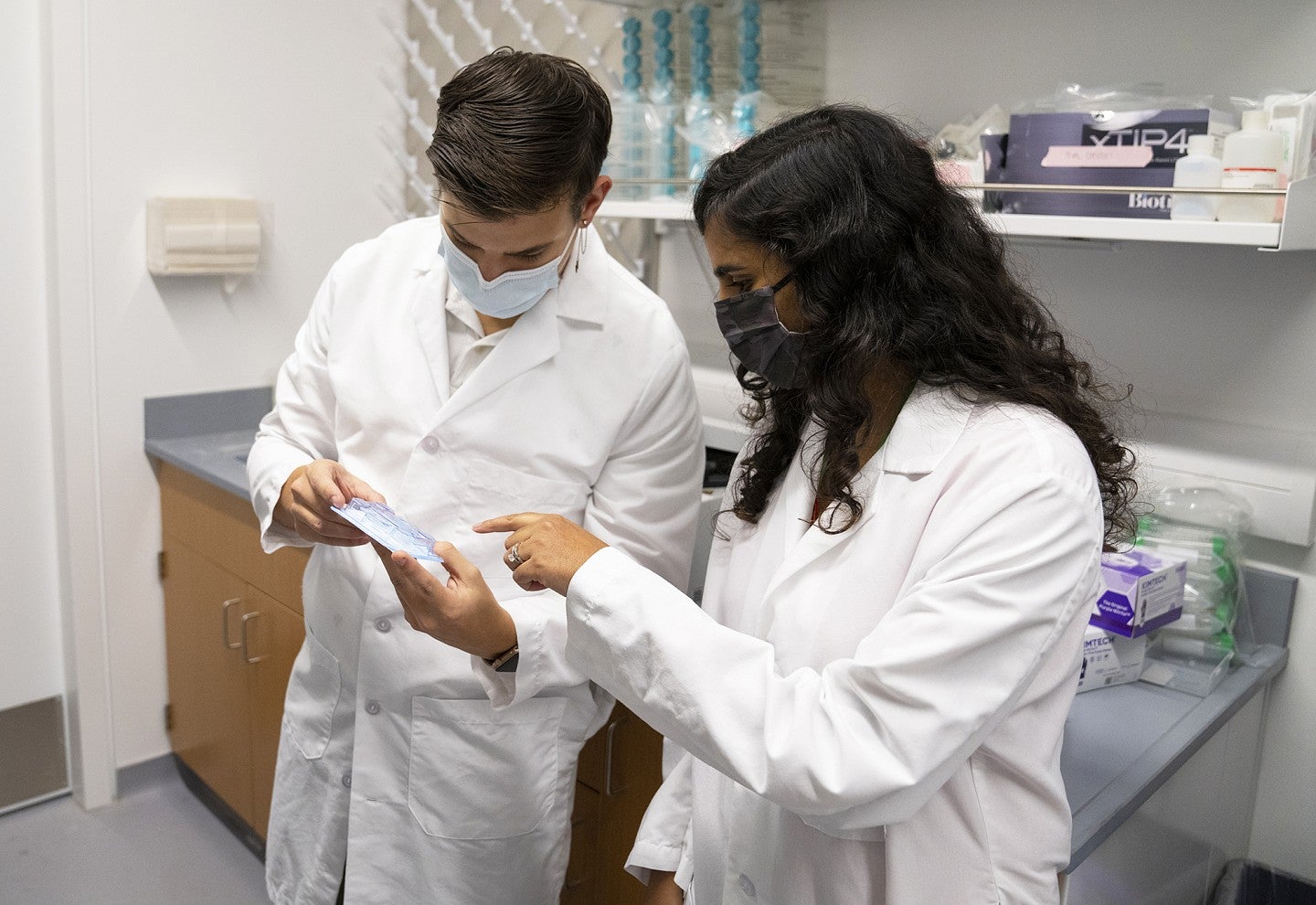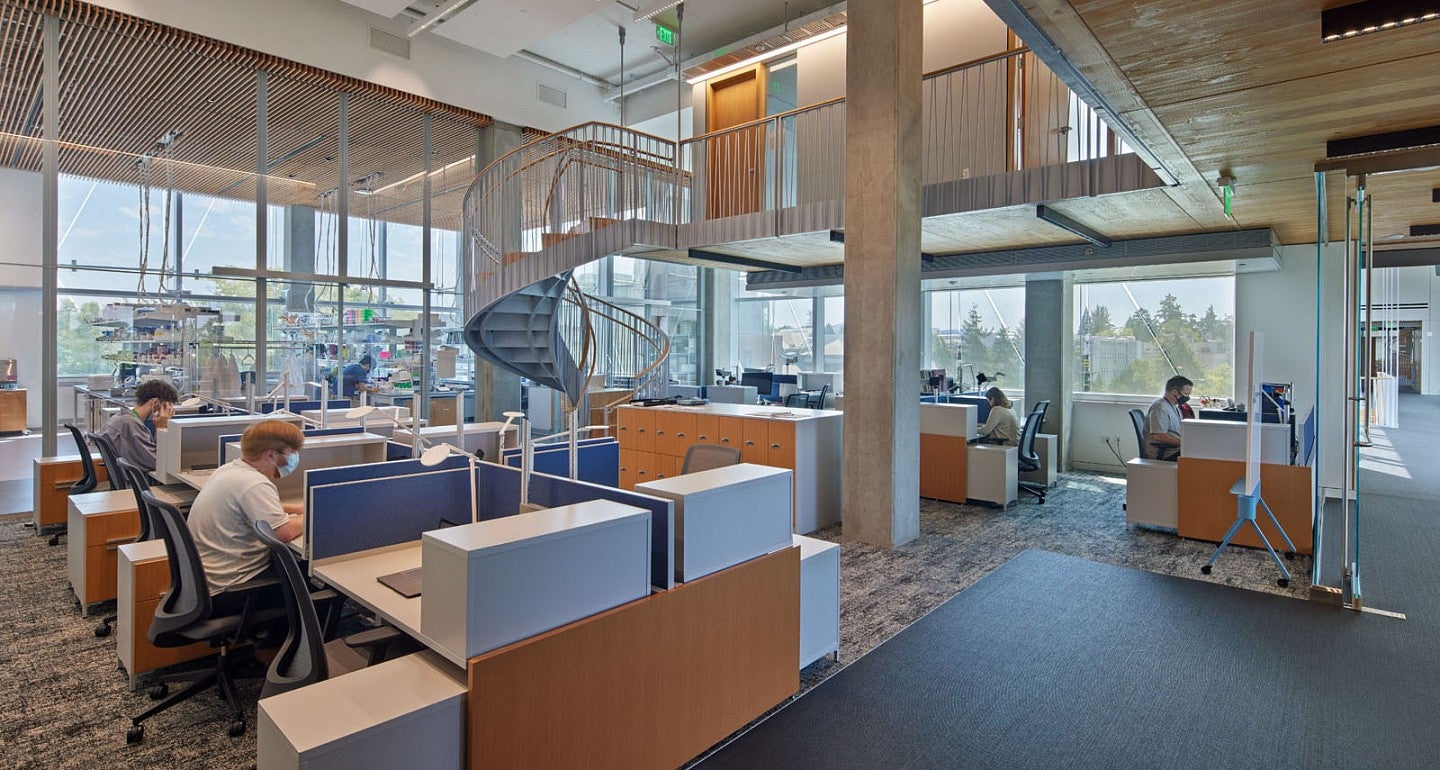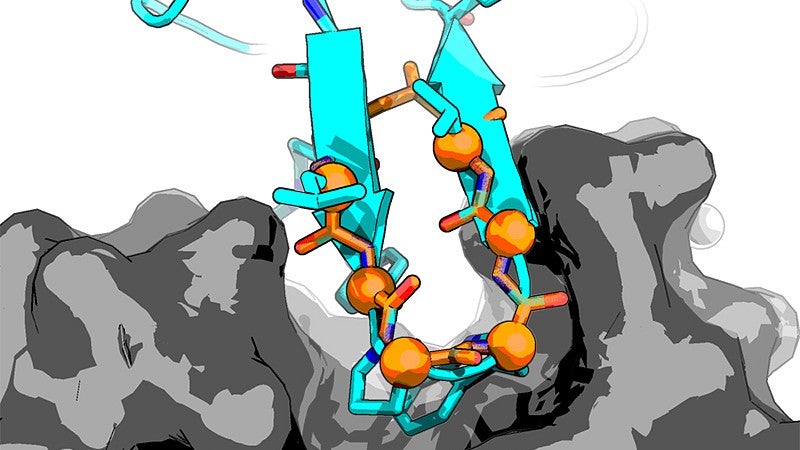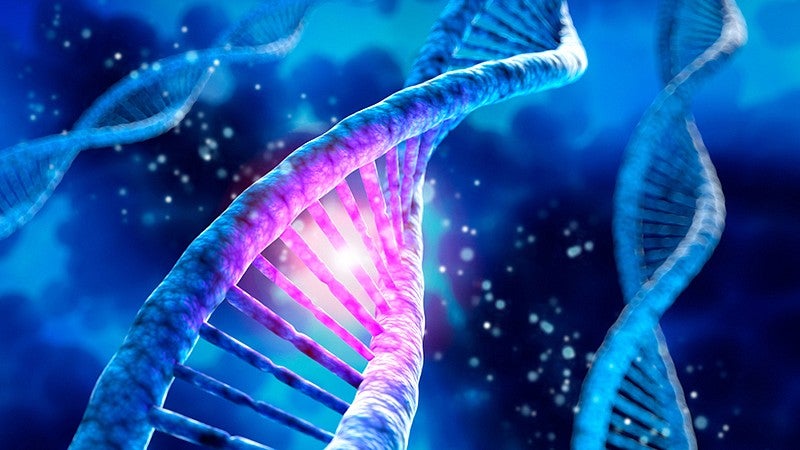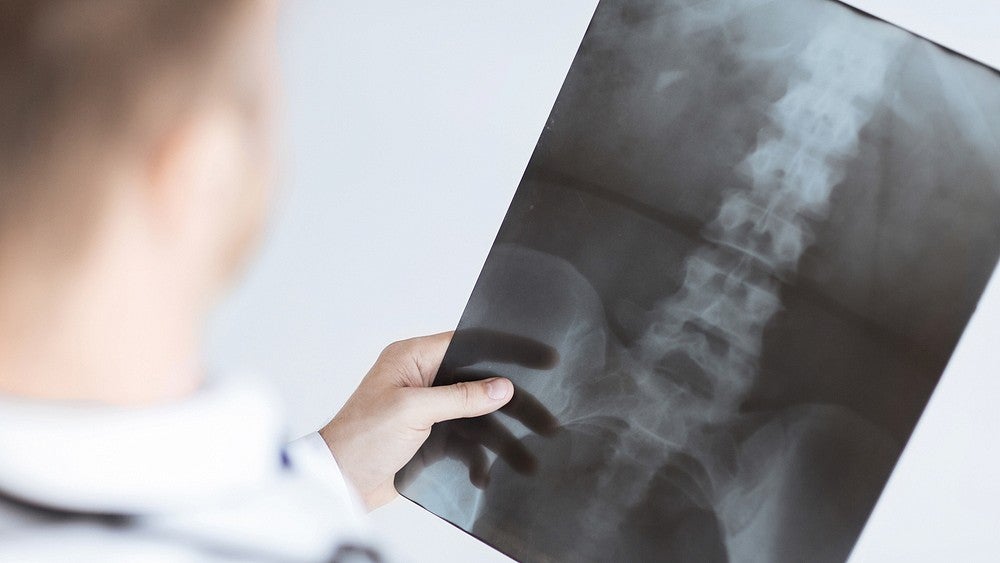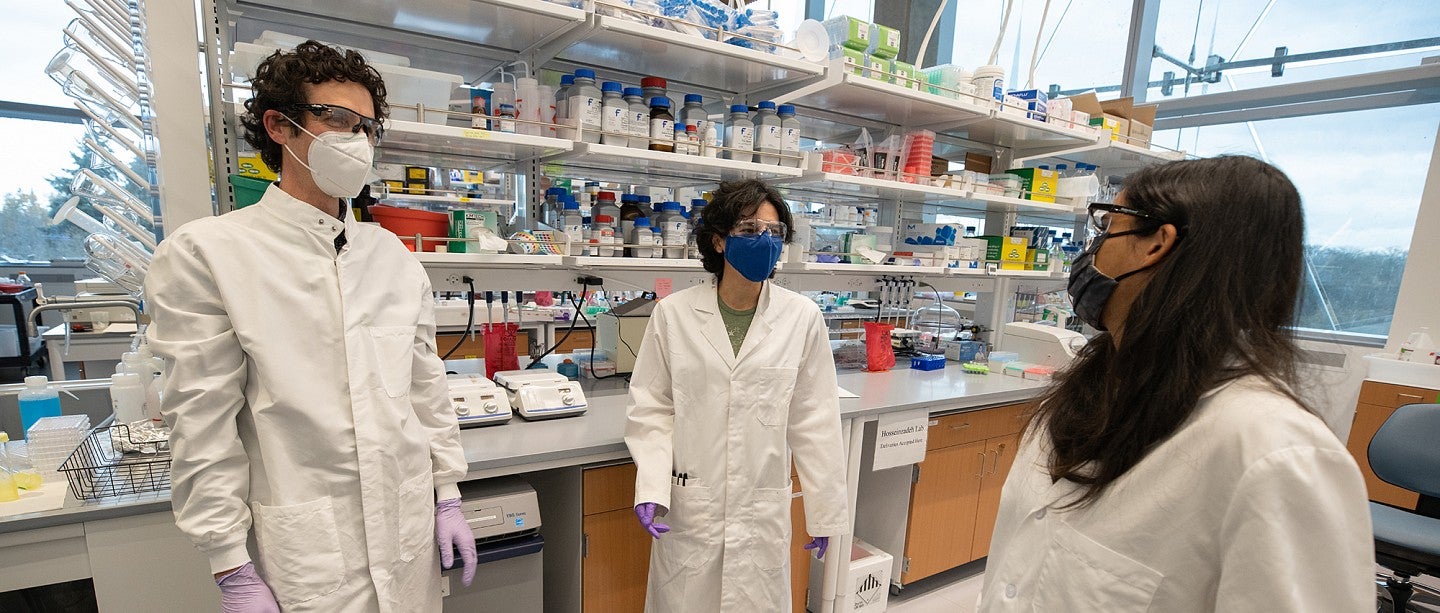
Synthetic biologist Calin Plesa, computational biochemist Parisa Hosseinzadeh and bioengineer Marian Hettiaratchi came to Oregon from around the world to improve lives through discovery. The three early career faculty members share one of the Phil and Penny Knight Campus for Accelerating Scientific Impact’s trademark research neighborhoods, where principal investigators specializing in complementary fields focus their teams, labs, and life’s work on societal impact. Less than two years after starting at the Knight Campus, the three researchers received National Institutes of Health grants totaling nearly $5 million, supporting powerful research with the potential to help us heal faster, be healthier and live better.
During a 2-year time frame, the Hosseinzadeh, Plesa and Hettiaratchi labs had:
Marian Hettiaratchi
Calin Plesa
Parisa Hosseinzadeh
Together, the Hosseinzadeh, Plesa and Hettiaratchi labs received 10 grants over two years:
Next-Generation, Creative Problem Solvers
The Knight Campus research neighborhood structure with its flexible, open bench laboratories and other shared spaces allows for an increased sense of community and connection among faculty, staff, and students across different teams tackling complementary scientific challenges. Students and research trainees are an integral part of that structure, and Knight Campus PIs play an important role in mentoring the future researchers of tomorrow, including undergraduates in the Knight Campus Undergraduate Scholars program, graduate students in the Knight Campus Graduate Internship Program, Ph.D. students in the Bioengineering program and postdoctoral scholars.
“Students have to talk to each other because they see each other all the time. They get to ask questions from experts in the field, like people who have expertise in areas I don't have,” Hosseinzadeh said. “They're exposed to different types of research. Which helps them find their own path in the future, create their own collaborations. I think these interactions are the most important things.”
